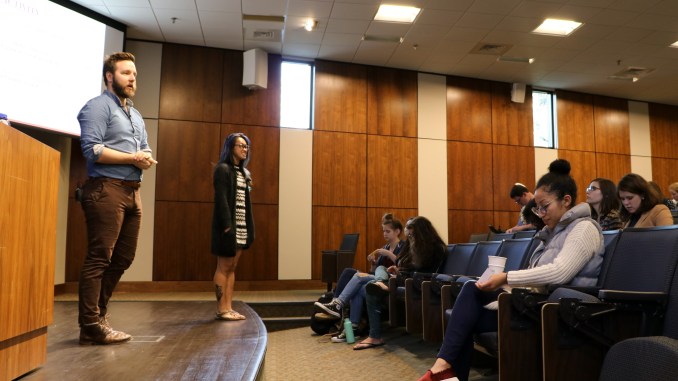
By Angelina Ingrassia ’18
Managing Editor
Gordon recently held its first Sexual Assault Prevention and Awareness Training with the help of YWCA North Shore Rape Crisis Center and Gordon’s FAST (fighting against sexual trauma), a group of students whose purpose is to raise awareness and support for those struggling within the realms of sexual trauma.
The evening session was guided by two YWCA employees, Cindy Su and Ross Steinborn, who spoke on healthy sexual relationships, defined consent, and reaffirmed the rising awareness of present day society to the reality of rape.
Su and Steinborn began by defining consent for the audience. It “is an explicitly communicated reversible, mutual agreement to which all parties are capable of making a decision.”
Mutual in the idea that “all parties understand and want the same thing.”
Communicated as in verbally or with body language, and the argument to not just avoid the “no” but to articulate it just as much as one should articulate a “yes.”
Consent should be reversible with the knowledge that “everyone has the right to change their mind” and at any point of the situation.
And to be capable of consent, one should be at the age of consent and be completely and wholly within a state of consciousness and coherency.
Su and Steinborn also brought to light the flaws surrounding consent and assault. The Law says, “if the person is incapacitated, they cannot obtain or receive consent in a sexual encounter” while the problem is, therefore, that “research suggest that 50% of sexual assault cases involved alcohol by either the victim, the perpetrator or both.” These statements raise the question of whether alcohol use is the cause of sexual violence.
The answer: no. As Su said, “Adult things come with adult consequences.” It is the person who initiates the action that is at fault.
The two speakers concluded the training with the question, So what can you do and how can you step up? With this challenge, they argued that even as strangers, speaking up and “checking-in” could possibly save someone from disaster.
The conversation will be furthered November 9th with a follow-up training and the further pursuit of justice within this topic.




Leave a Reply